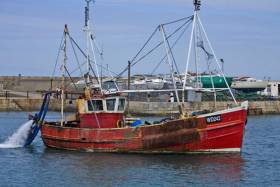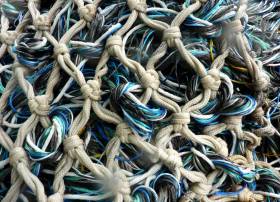Displaying items by tag: London Fisheries Convention
Britain’s Withdrawal From Fisheries Convention Could Be ‘Catastrophic’ For Irish Fleet
#Brexit - Britain’s withdrawal from the London Fisheries Convention could be “catastrophic” for the Irish fishing fleet — with fishermen in Northern Ireland being the “big losers” in the end.
That’s the stark warning from fisheries organisations noted in Independent.ie’s rundown of ‘the five things you need to know as the UK backs out of the EU fishing deal’.
As previously reported on Afloat.ie, Irish trawlers could soon face a ban from fishing within 12 nautical miles of the UK as ministers in Westminster prepare to trigger Britain’s withdrawal from the 53-year-old London Fisheries Convention.
The agreement, which grants fishing rights to European countries — including Ireland — that have traditionally fished in British waters for centuries, was incorporated into the Common Fisheries Policy more than 30 years ago.
However, Brexit means the UK’s exit from the CFP and an intention to reassert control over its fishing waters.
The affect for Ireland could be the wiping out of the Irish fishing industry, fears Patrick Murphy of the Irish South and West Fish Producers Organisation (IS&WFPO), who explains that as much as 50% of the Irish catch comes from English waters.
And Northern Irish fishermen would be “big losers” after such a move, says Francis O'Donnell of the Irish Fish Producers Organisation (IFPO) — with no specifics on how common fishing grounds such as Lough Foyle and Carlingford Lough would be handled.
Meanwhile, UK Environment Secretary Michael Gove claims that leaving the convention would give Britain the power to build a new domestic fishing policy “which leads to a more competitive, profitable and sustainable industry”.
But the WWF warns that making its own decisions is not enough for Britain to support its fishing industry.
“Achieving sustainable fishing is about a lot more than which country fishes where,” said the environmental NGO’s Ben Stafford, who added: “We will still need to co-operate with our neighbours, as fish do not recognise lines on a map.”
Independent.ie has much more on the story HERE.
Irish Fleet Could Face UK Ban With Britain’s Withdrawal From Longstanding Fisheries Agreement
#Fishing - Irish trawlers could soon be banned from fishing within 12 nautical miles of the UK after its exit from an agreement to share its waters with other European maritime countries.
According to The Irish Times, Britain announced at the weekend that it would trigger its withdrawal from the 53-year-old London Fisheries Convention as part of Brexit.
The convention was signed in 1964 with France, Belgium, Germany, the Netherlands and Ireland to allow fishing in waters that have been traditionally shared for centuries.
Rights granted by the convention were incorporated into the European Union’s Common Fisheries Policy in 1983.
But as negotiations for Britain’s withdrawal from the EU begin, the UK has also triggered its exit from the longstanding convention — a move described by Irish Marine Minister Michael Creed as “unwelcome and unhelpful”.
The Irish fleet sources the majority of its mackerel catch and most of its prawns from UK waters, the minister added.
Irish fishing industry organisations, meanwhile, have branded the decision as Britain’s “first serious shot on Brexit”.
Both the Irish South and West Fish Producers Organisation (IS&WFPO) and Killybegs Fishermen’s Organisation (KFO) say the move is proof the that UK is seeking a ‘hard’ Brexit when it comes to fishing rights, as The Irish Times reports.
The news comes just days after Minister Creed said there was ‘strength in unity’ when it comes to pending Brexit fisheries negotiations.






























































